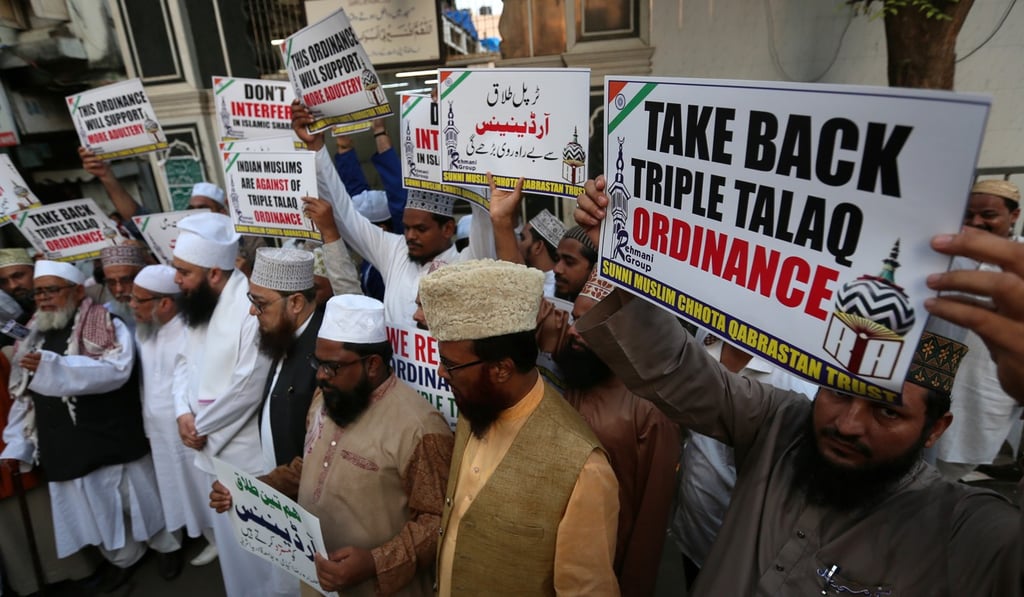Opinion | Criminalising talaq Muslim divorce in India is overkill
- The controversial practice of instant divorce was already legally invalid – thanks to a 2017 ruling. So why the sudden need to criminalise it too?
- Are Muslim practices being singled out for partisan, political reasons?

Bano was married for 15 years. In 2016, her husband divorced her through talaq-e-bidat, a practice of Muslim personal law in India that would allow a husband to unilaterally effect instant and irrevocable divorce by pronouncing the word “talaq” (repudiation) three times.
Bano argued before the Supreme Court that “instantaneous triple talaq”, which had existed in India for years, was unconstitutional. And in a country of some 200 million Muslims, the court agreed with her.
The device of talaq is well-established in Muslim personal law as one means, among others, of divorce. But there are different forms of talaq. The form considered most in accordance with the tradition involves time – typically three months – from the pronouncement of talaq before it takes effect.

